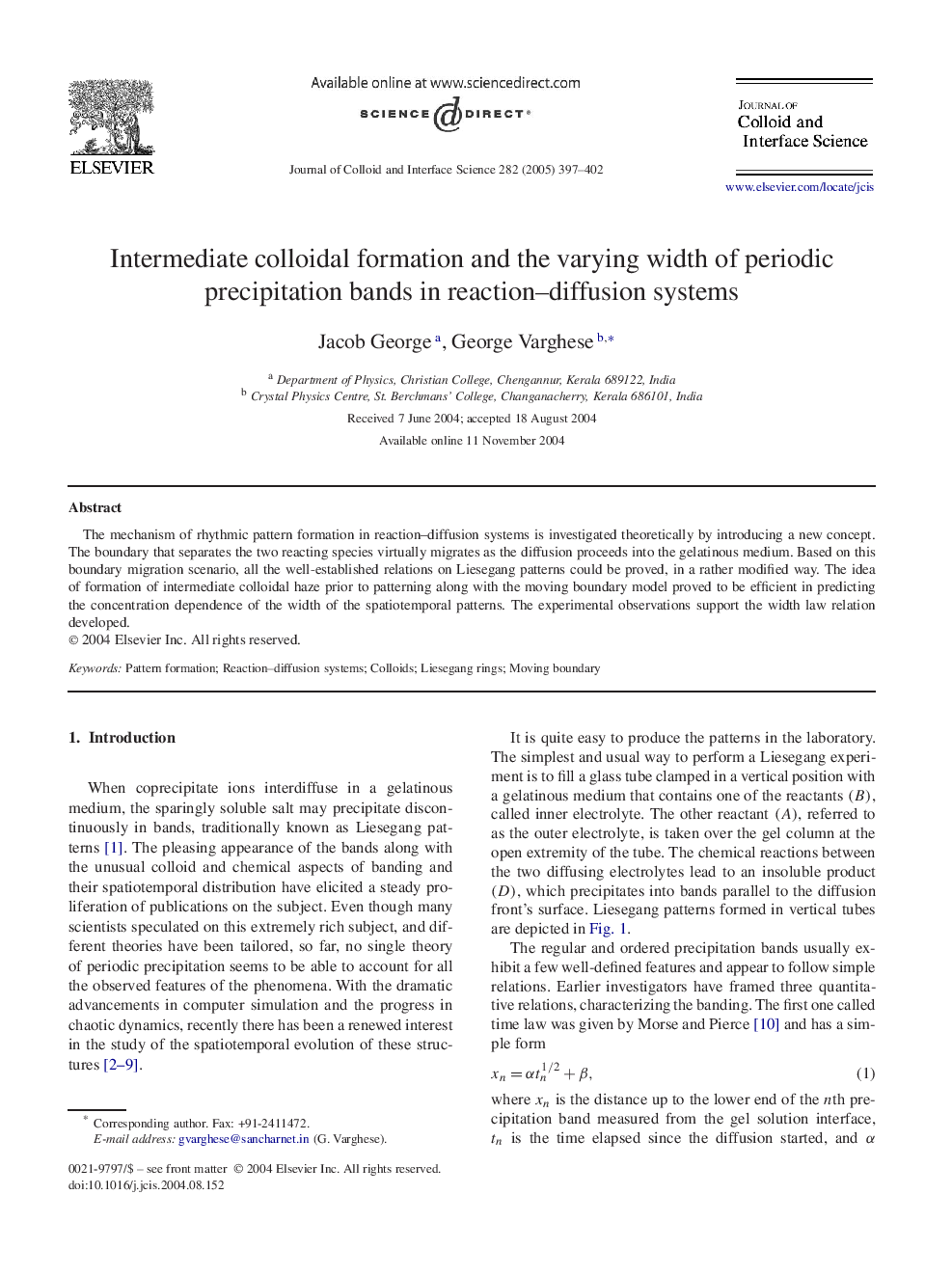| Article ID | Journal | Published Year | Pages | File Type |
|---|---|---|---|---|
| 10378772 | Journal of Colloid and Interface Science | 2005 | 6 Pages |
Abstract
The mechanism of rhythmic pattern formation in reaction-diffusion systems is investigated theoretically by introducing a new concept. The boundary that separates the two reacting species virtually migrates as the diffusion proceeds into the gelatinous medium. Based on this boundary migration scenario, all the well-established relations on Liesegang patterns could be proved, in a rather modified way. The idea of formation of intermediate colloidal haze prior to patterning along with the moving boundary model proved to be efficient in predicting the concentration dependence of the width of the spatiotemporal patterns. The experimental observations support the width law relation developed.
Related Topics
Physical Sciences and Engineering
Chemical Engineering
Colloid and Surface Chemistry
Authors
Jacob George, George Varghese,
